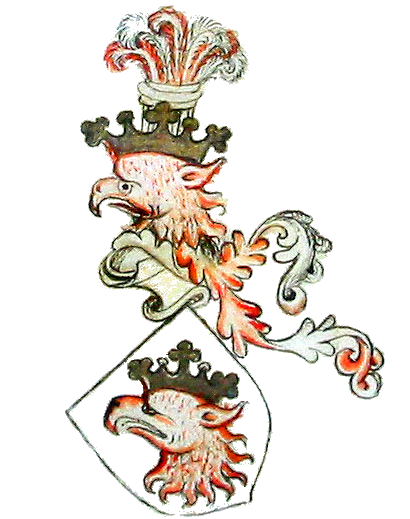|
Diablos Motorcycle Club (founded 1999)
The Diablos Motorcycle Club is an international outlaw motorcycle club that was founded in Pattaya, Thailand, in 1999. The Diablos are a support club (called puppet clubs by law enforcement) for the Bandidos. The Diablos' colors are red and gold. Like all Bandidos support clubs, the lettering on the patch is gold on red, contrasting the Bandidos' red on gold. The club insignia consists of a maliciously grinning devil's head. Branches Since the foundation of the first chapter in Thailand in 1999, branches in other Asian countries have also been formed, including Indonesia, Kazakhstan, Laos, Singapore and the United Arab Emirates. In 2000, the club expanded to Europe, and chapters in Belgium and Germany were founded. Branches opened in Sweden and Finland the following year. The club was established in Australia in 2014. Incidents Australia Members of the Hells Angels and associated clubs raided the Diablos' clubhouse in Melton, Melbourne, on 1 March 2013, according to the ''Sydn ... [...More Info...] [...Related Items...] OR: [Wikipedia] [Google] [Baidu] |
Pattaya
Pattaya ( th, พัทยา, , ) is a city in Thailand. It is on the east coast of the Gulf of Thailand, about southeast of Bangkok, within, but not part of, Bang Lamung district in the province of Chonburi province, Chonburi. Pattaya City ( th, เมืองพัทยา, ) is a self-governing municipal area which covers tambon, Tambon's Nong Prue and Na Klua and parts of Huai Yai and Nong Pla Lai. The city is in the industrial Eastern Seaboard of Thailand, Eastern Seaboard zone, along with Si Racha, Laem Chabang, and Chonburi. Pattaya is at the center of the Pattaya-Chonburi Metropolitan Area—a wikt:conurbation, conurbation in Chonburi Province—with a population of roughly 1,000,000. History The name ''Pattaya'' evolved from the march of Phraya Tak (later King Taksin) and his army from Phra Nakhon Si Ayutthaya Province, Ayutthaya to Chanthaburi Province, Chanthaburi, which took place before the fall of the former capital to Burma, Burmese invaders in 1767. When ... [...More Info...] [...Related Items...] OR: [Wikipedia] [Google] [Baidu] |
Aachen
Aachen ( ; ; Aachen dialect: ''Oche'' ; French and traditional English: Aix-la-Chapelle; or ''Aquisgranum''; nl, Aken ; Polish: Akwizgran) is, with around 249,000 inhabitants, the 13th-largest city in North Rhine-Westphalia, and the 28th-largest city of Germany. It is the westernmost city in Germany, and borders Belgium and the Netherlands to the west, the triborder area. It is located between Maastricht (NL) and Liège (BE) in the west, and Bonn and Cologne in the east. The Wurm River flows through the city, and together with Mönchengladbach, Aachen is the only larger German city in the drainage basin of the Meuse. Aachen is the seat of the City Region Aachen (german: link=yes, Städteregion Aachen). Aachen developed from a Roman settlement and (bath complex), subsequently becoming the preferred medieval Imperial residence of Emperor Charlemagne of the Frankish Empire, and, from 936 to 1531, the place where 31 Holy Roman Emperors were crowned Kings of the Germans. ... [...More Info...] [...Related Items...] OR: [Wikipedia] [Google] [Baidu] |
Gangs In Australia
The history of gangs in Australia goes back to the colonial era. Criminal gangs flourished in The Rocks district of Sydney in its early history in the 19th century. The Rocks Push was a notorious larrikin gang which dominated the area from the 1800s to the end of the 1900s. The gang was engaged in running warfare with other larrikin gangs of the time such as the Straw Hat Push, the Glebe Push, the Argyle Cut Push, the Forty Thieves from Surry Hills, and the Gibb Street Mob. In the 20th century Italian crime gangs were active in Melbourne and Sydney, and youth gangs like the Sharpies in the 1960s have been large enough to cause disturbances, though lacking criminal organisation. So-called "outlaw" bikie gangs have had a very visible presence in many places throughout Australia since the 1950s, and several laws have been specifically prompted by their actions. Gang types Southeast Asian and Chinese gangs In the late 1980s, the Vietnamese gang 5T was active in the Cabra ... [...More Info...] [...Related Items...] OR: [Wikipedia] [Google] [Baidu] |
Outlaw Motorcycle Clubs
An outlaw, in its original and legal meaning, is a person declared as outside the protection of the law. In pre-modern societies, all legal protection was withdrawn from the criminal, so that anyone was legally empowered to persecute or kill them. Outlawry was thus one of the harshest penalties in the legal system. In early Germanic law, the death penalty is conspicuously absent, and outlawing is the most extreme punishment, presumably amounting to a death sentence in practice. The concept is known from Roman law, as the status of '' homo sacer'', and persisted throughout the Middle Ages. A secondary meaning of outlaw is a person who systematically avoids capture by evasion and violence to deter capture. These meanings are related and overlapping but not necessarily identical. A fugitive who is declared outside protection of law in one jurisdiction but who receives asylum and lives openly and obedient to local laws in another jurisdiction is an outlaw in the first meaning but not ... [...More Info...] [...Related Items...] OR: [Wikipedia] [Google] [Baidu] |
2003 Establishments In Thailand
3 (three) is a number, numeral and digit. It is the natural number following 2 and preceding 4, and is the smallest odd prime number and the only prime preceding a square number. It has religious or cultural significance in many societies. Evolution of the Arabic digit The use of three lines to denote the number 3 occurred in many writing systems, including some (like Roman and Chinese numerals) that are still in use. That was also the original representation of 3 in the Brahmic (Indian) numerical notation, its earliest forms aligned vertically. However, during the Gupta Empire the sign was modified by the addition of a curve on each line. The Nāgarī script rotated the lines clockwise, so they appeared horizontally, and ended each line with a short downward stroke on the right. In cursive script, the three strokes were eventually connected to form a glyph resembling a with an additional stroke at the bottom: ३. The Indian digits spread to the Caliphate in the 9th ... [...More Info...] [...Related Items...] OR: [Wikipedia] [Google] [Baidu] |
Organizations Established In 2003
An organization or organisation (English in the Commonwealth of Nations, Commonwealth English; American and British English spelling differences#-ise, -ize (-isation, -ization), see spelling differences), is an legal entity, entity—such as a company, an institution, or an Voluntary association, association—comprising one or more person, people and having a particular purpose. The word is derived from the Greek word ''organon'', which means tool or instrument, musical instrument, and Organ (anatomy), organ. Types There are a variety of legal types of organizations, including corporations, governments, non-governmental organizations, political organizations, international organizations, armed forces, charitable organization, charities, not-for-profit corporations, partnerships, cooperatives, and Types of educational institutions, educational institutions, etc. A hybrid organization is a body that operates in both the public sector and the private sector simultaneously, fu ... [...More Info...] [...Related Items...] OR: [Wikipedia] [Google] [Baidu] |
Kvällsposten
''Expressen'' (''The Express'') is one of two nationwide evening newspapers in Sweden, the other being ''Aftonbladet''. ''Expressen'' was founded in 1944; its symbol is a wasp and its slogans are "it stings" or "''Expressen'' to your rescue". Overview The first edition of ''Expressen'' was published on 16 November 1944. A main feature that day was an interview with the crew members of a British bomber who were successful in sinking the German ship ''Tirpitz''. A project of Albert Bonnier Jr., Carl-Adam Nycop, and Ivar Harrie – who was to become the first editor-in-chief – Expressen was created in part to push back against "national socialism and related violent ideologies." The paper is owned by the Bonnier Group. As of 2005, the paper had a liberal stance, but it declared its independent leaning in 1995. Through mergers, the Gothenburg edition of ''Expressen'' is titled '' GT'' (originally ''Göteborgs-Tidningen'') and the Malmö edition is titled ''Kvällsposten'', b ... [...More Info...] [...Related Items...] OR: [Wikipedia] [Google] [Baidu] |
Toftanäs
Toftanäs is a neighbourhood of Malmö, situated in the Borough of Husie, Malmö Municipality, Skåne County, Sweden Sweden, formally the Kingdom of Sweden,The United Nations Group of Experts on Geographical Names states that the country's formal name is the Kingdom of SwedenUNGEGN World Geographical Names, Sweden./ref> is a Nordic country located on .... References Neighbourhoods of Malmö {{Skåne-geo-stub ... [...More Info...] [...Related Items...] OR: [Wikipedia] [Google] [Baidu] |
Sydsvenskan
''Sydsvenska Dagbladet Snällposten'', generally known simply as ''Sydsvenskan'' (, ''The South Swedish''), is a daily newspaper published in Scania in Sweden. History and profile ''Sydsvenskan'' was founded in 1870. In 1871 the paper merged with ''Snällposten'' which was started in 1848. ''Sydsvenskan'' is headquartered in Malmö and mostly distributed in southern Scania. Its coverage is characterized by local news from southwest Scania in addition to a full coverage of national, EU, and international news. The paper is owned by the Bonnier Group which bought it in 1994. It was one of the Swedish publications which featured news materials provided by the Swedish Intelligence Agency during World War II. Until 1966, ''Sydsvenskan'' had close ties to the Rightist Party (now Moderate Party). In the Swedish debate about the country's role in the EU and in relation to the Eurozone, the paper has emphasized the importance of a closer political, economical, and cultural affiliatio ... [...More Info...] [...Related Items...] OR: [Wikipedia] [Google] [Baidu] |
Malmö
Malmö (, ; da, Malmø ) is the largest city in the Swedish county (län) of Scania (Skåne). It is the third-largest city in Sweden, after Stockholm and Gothenburg, and the sixth-largest city in the Nordic region, with a municipal population of 350,647 in 2021. The Malmö Metropolitan Region is home to over 700,000 people, and the Øresund Region, which includes Malmö and Copenhagen, is home to 4 million people. Malmö was one of the earliest and most industrialised towns in Scandinavia, but it struggled to adapt to post-industrialism. Since the 2000 completion of the Öresund Bridge, Malmö has undergone a major transformation, producing new architectural developments, supporting new biotech and IT companies, and attracting students through Malmö University and other higher education facilities. Over time, Malmö's demographics have changed and by the turn of the 2020s almost half the municipal population had a foreign background. The city contains many histori ... [...More Info...] [...Related Items...] OR: [Wikipedia] [Google] [Baidu] |
Focus (German Magazine)
''Focus'' (styled as ''FOCUS'') is a German-language news magazine published by Hubert Burda Media. Established in 1993 as an alternative to the '' Der Spiegel'' weekly news magazine, since 2015 the editorial staff has been headquartered in Germany's capital of Berlin. Alongside Spiegel and Stern, Focus is one of the three most widely circulated German weeklies. The concept originated from Hubert Burda and Helmut Markwort, who went from being Editor-in-chief to become publisher in 2009 and since 2017 has been listed in the publication's masthead as founding editor-in-chief. As of March 2016 the editor-in-chief of ''Focus'' was Robert Schneider. History Under the code name "Zugmieze", work commenced on Focus in the summer of 1991. In October 1992, Hubert Burda Media announced plans for a new weekly news magazine. Observers initially gave the project only little chance for success. Several attempts of other publishers to establish a competitor to Spiegel and Stern magazines had ... [...More Info...] [...Related Items...] OR: [Wikipedia] [Google] [Baidu] |





